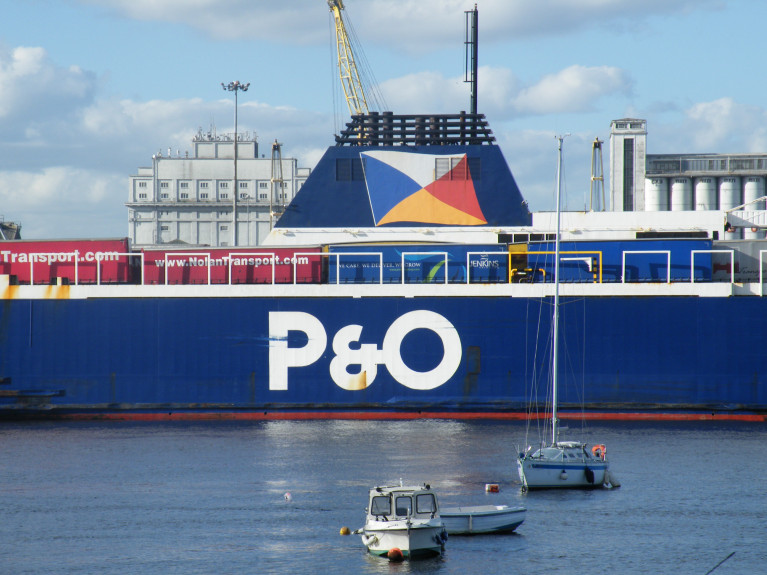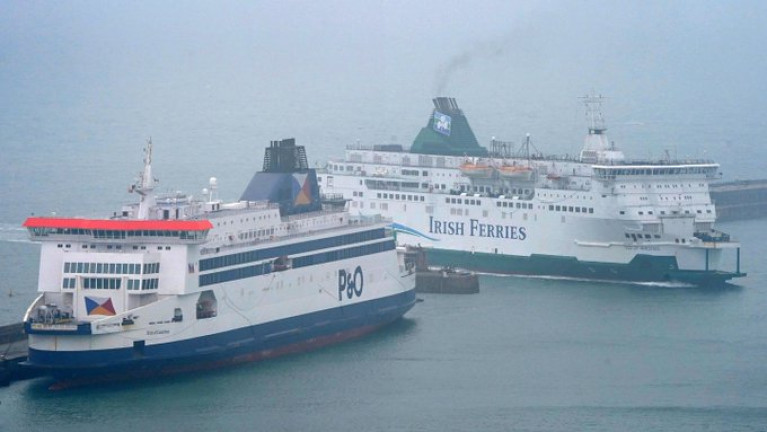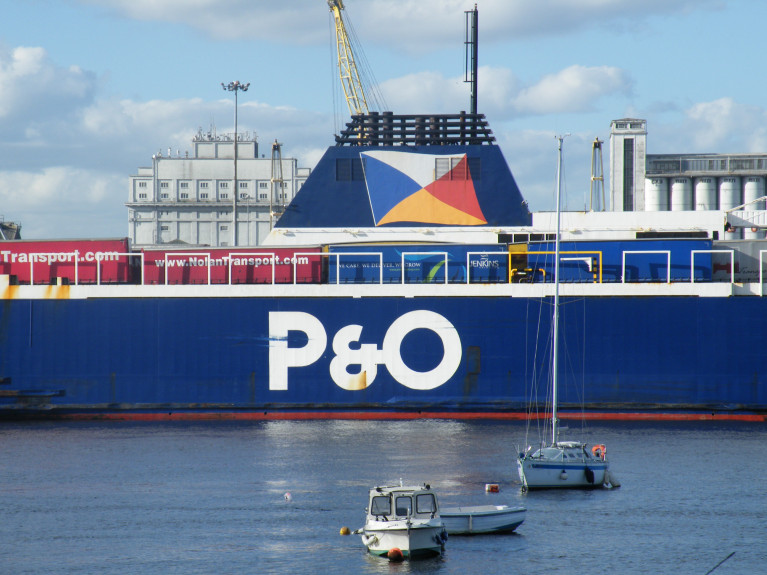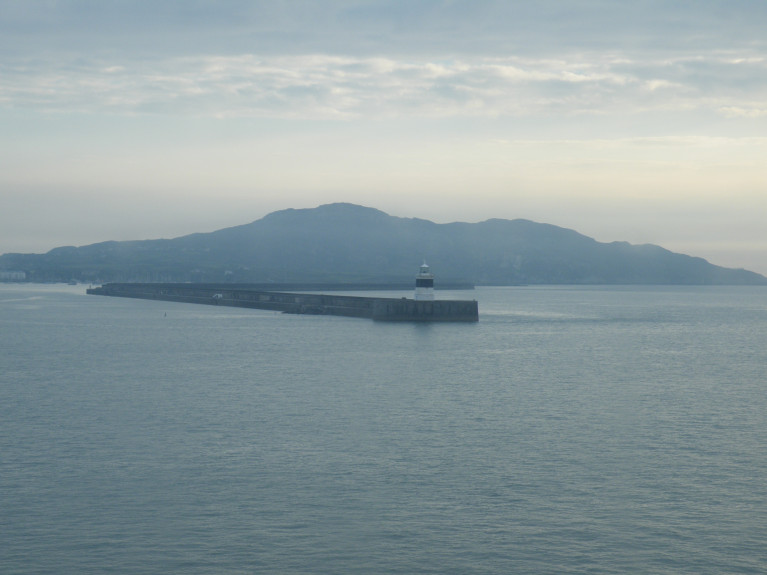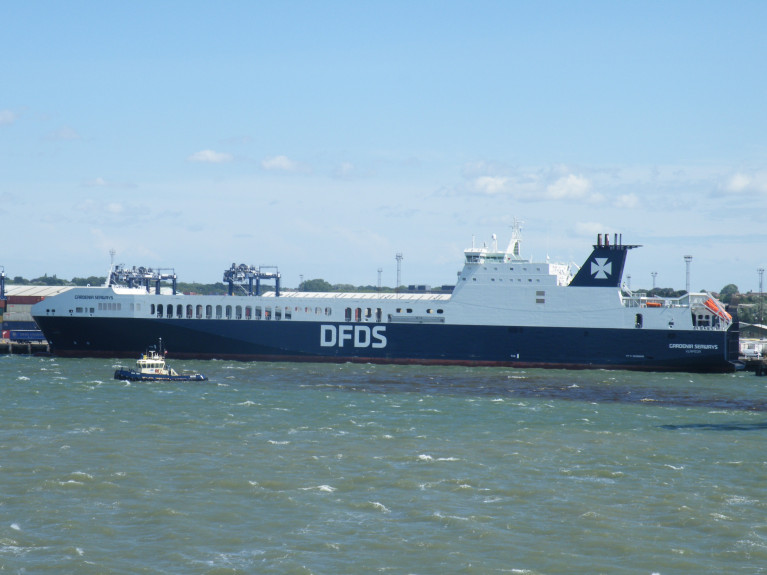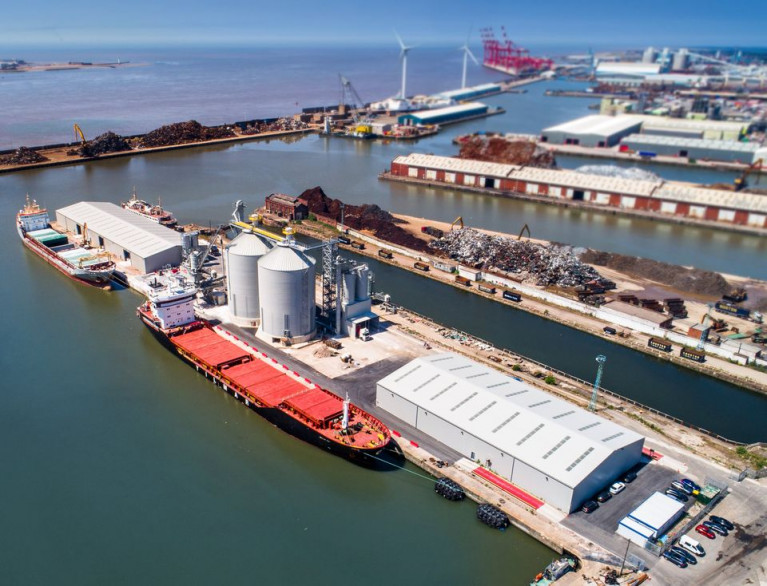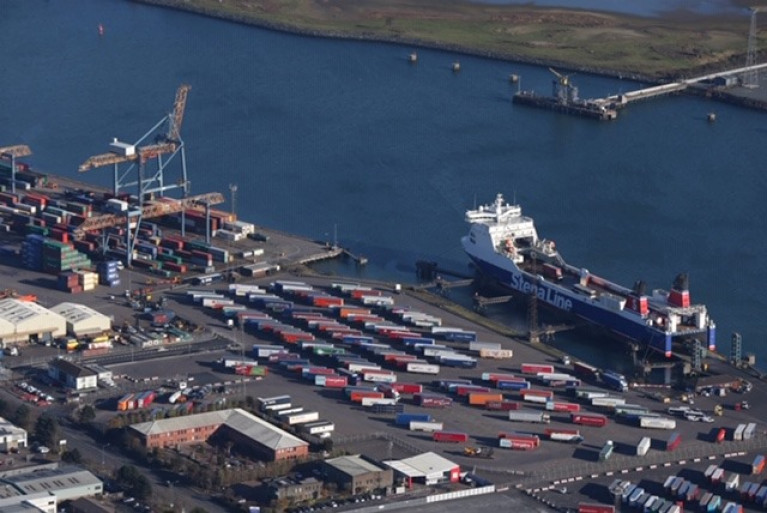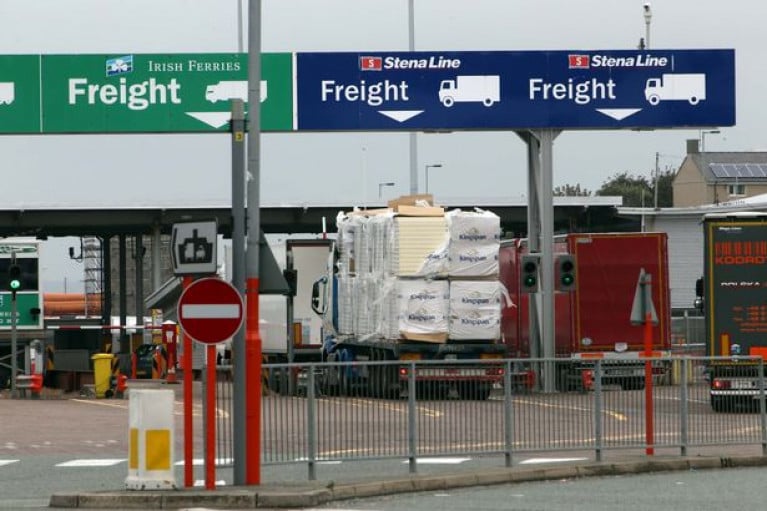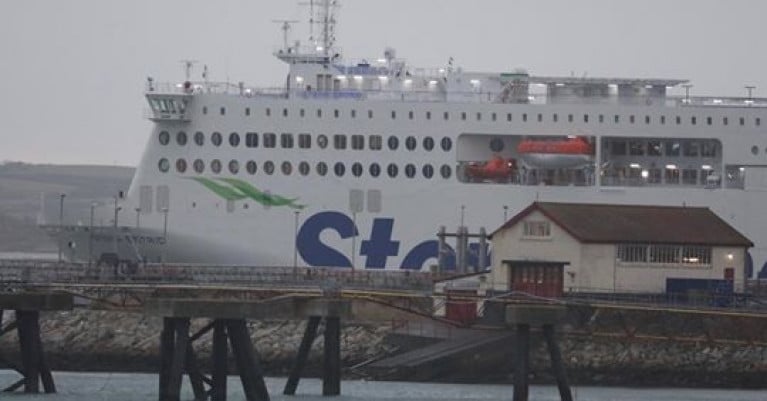Displaying items by tag: UK Gov
UK Government Ministers Have Done Nothing to Stop Repeat of P&O Ferries Scandal, Unions Say
Trade unions in the UK have called for proper legal protection for seafarers on the second anniversary of the P&O Ferries mass sudden sackings scandal, warning that government ministers have “done nothing” to stop other ferry firms from following suit.
The Strait of Dover, North Sea, and Irish Sea ferry operator fired 786 British crew on 17 March, 2022 (when all the fleet were instructed to stay in port), in order to replace them with low-paid agency staff. Although the DP World-owned ferry firm admitted to breaking the law, it has continued to operate without sanction while undercutting rival operators on the issue of labour costs.
Two years after the large-scale sackings, unions said that, despite the widespread outrage expressed by the government at the time, ministers had not closed the legal loopholes exploited by P&O Ferries. In addition to not sanctioning the firm or DP World.
In July 2022, the government introduced a new bill to stop firms using legal loopholes to pay low wages, following P&O Ferries’ mass sackings. The government has pledged to pass the Seafarers’ Wages Act, in an attempt to enforce minimum wage legislation for ships operating primarily in British ports, but such legislation has yet to pass.
It has launched a seafarers’ charter, but all the UK-Europe ferry operators—Brittany Ferries, DFDS, Stena Line, and Condor Ferries (Channel Islands)—are signatories to the commitment to work towards higher standards, though P&O and Irish Ferries have not signed up.
More The Guardian reports on the legacy following the fallout of P&O Ferries.
The UK Government says it has cancelled a contract with P&O Ferries "with immediate effect" in its latest action against the DP World-owned company following its decision to axe hundreds of staff earlier this year.
The Home Office said it was ending its agreement with the firm to provide contingency travel services to "juxtaposed ports" where British staff operate border controls in Belgium and France to check passengers and freight destined for Britain.
It comes after P&O Ferries, whose ships sail across the English Channel, North Sea and Irish Sea, laid off nearly 800 workers in March and then went on to hire cheaper agency staff.
The move sparked criticism from trade unions and politicians alike.
RTE News has more on the development.
Plans by the British Government to prevent ferry companies operating out of UK ports paying below the country’s minimum wage could have implications for Irish Ferries, which is owned by listed company Irish Continental Group.
According to the The Irish Times, UK transport secretary Grant Shapps said on Monday he was giving the boss of P&O Ferries “one final opportunity” to re-employ sacked staff on their previous salaries.
In a letter to the ferry company’s chief executive Peter Hebblethwaite, Mr Shapps called on the operator to offer all 800 crew their jobs back and pledged to bring a “comprehensive package of measures to parliament to ensure that seafarers are protected against these type of actions”.
Last week Mr Shapps promised to stop a race to the bottom on declining rates of pay on UK ferry routes, naming Irish Ferries as another operator that “already went down this route”.
He said that he wanted to protect other operators such as Stena and DFDS which were not using “this cheap-labour, below-the-minimum-wage model”
UK legislative changes, as promised by Mr Shapps, could force low-cost ferry operators such as Irish Ferries to increase their wages if they are going to continue using UK ports.
The British transport secretary is expected to outline his plans to change the law on Wednesday or Thursday. Irish Ferries had no comment to make on the potential impact of the proposals.
In 2005, Irish Ferries replaced 543 crew members with eastern European workers paying them less than half the Irish minimum wage in a move that sparked a battle with the unions.
More here on this ongoing ferry sector story.
Deadline Given to P&O Ferries to Reemploy Sacked Workers
The chief executive of P&O Ferries has been given "one final opportunity" to reemploy sacked staff on their previous salaries by Transport Secretary Grant Shapps.
As BBC News reports, in a letter, Mr Shapps again urged Peter Hebblethwaite to reverse his decision to sack 800 seafarers.
If not, he said the government's plans to make it illegal for ferry firms to pay less than the minimum wage, would likely force him to do so.
Mr Shapps also repeated his call for the P&O Ferries boss to quit.
P&O Ferries prompted outrage on 17 March when it announced that it would be replacing staff immediately with agency workers paid less than the minimum wage.
"A reversal at this point may also go some way in starting to repair your firm's reputation," the transport secretary wrote, accusing Mr Hebblethwaite of leaving it in "tatters".
Mr Shapps also suggested that company dropped a 31 March deadline given to staff to respond to redundancy offers.
Mr Hebblethwaite admitted last week that his decision to sack 800 workers without consulting unions first broke the law. However, he said no union would have accepted the plan and it was easier to compensate workers "in full" instead.
More on the ferry crewing dispute story here.
At a distance of 50-miles, a tunnel under the Irish Sea, connecting Wales and Ireland has been suggested UK Secretary of State for Transport Grant Shapps.
In an interview with the Financial Times, Shapps suggested a tunnel between Wales and Ireland as an alternative to Prime Minister Boris Johnson's scheme to link Scotland with Northern Ireland.
When questioned on the idea of linking Northern Ireland with mainland Britain, he said: "Why not?"
The Daily Express reported that the tunnel could be from Holyhead to Dublin and had been previously been priced at £15bn. It would be twice as long as the Channel Tunnel linking Kent and France (see other story on Irish Ferries).
In the Sunday Times, Political Editor Tim Shipman reported that a feasibility study could be launched in the next few weeks.
NorthWalesLive has more on this story.
Ferry Operators Handed £77.6m in UK Government Post-Brexit Contracts
Ferry firms involving four operators have landed UK government contracts worth a total of £77.6m to provide post-Brexit freight capacity.
Brittany Ferries, DFDS, P&O Ferries and Stena Line, according to BBC News, will have the job of ensuring medical supplies and other vital goods continue to get to the UK.
The government says it wants a smooth flow of freight "whatever the outcome of negotiations with the EU",
Contracts will be in place for up to six months after the Brexit transition period ends on 31 December.
The additional capacity will be on quieter ferry routes between mainland Europe and UK ports in Felixstowe, Harwich, Hull, Newhaven, Poole, Portsmouth, Teesport and Tilbury.
British Ports Association Sets Out UK Government Spending Priorities
The British Ports Association (BPA) outlines that decarbonisation, innovation, infrastructure, freeports and properly functioning and resourced regulators are key asks for future government spending, which the association set out in a letter to the UK Chancellor from the ports industry today.
While the UK government’s planned ‘comprehensive spending review’ may be on ice for another year, according to reports, the BPA delivered its submission to the Treasury noting that reforms putting ports at the heart of regional economies should not be delayed.
With EU Exit [Brexit] imminent, the BPA has also called for funding to future-proof the sector. As a member of umbrella group Maritime UK, the BPA's submission complements MUK's submission, which calls for a £1bn maritime decarbonisation programme.
Commenting, Mark Simmonds, Head of Policy and External Affairs at the British Ports Association and Chair of Maritime UK's Policy Working Group said: “Whilst the Chancellor may understandably delay this process due to continuing uncertainty from covid-19, we hope the Government does not take its eye off decarbonisation and climate change, which is an urgent challenge.
For further details LloydsLoadingList reports of the BPA submission to the UK government.
UK Government to Pay for Northern Ireland Brexit Port Controls after Minister Proposed Halting Work
In the UK the Government, according to Belfast Telegraph, is set to pay for work on post-Brexit port checks in Northern Ireland, DAERA Minister Edwin Poots has said.
The DUP MLA told the BBC that the UK Government would now pay for the work after he reportedly proposed pausing it due to the current political uncertainty around Brexit.
In the summer, the Government said enhanced regulatory checks would be required on animals and food products crossing the Irish Sea from Great Britain to Northern Ireland under the terms of the Brexit deal.
The Executive assumed a legal responsibility to undertake the work for the Government to enable it to fulfil its international obligations under the Withdrawal Agreement.
However, Mr Poots expressed a reluctance to commit an estimated £40m to the project without further clarity. Click for more here.
Government in UK Accused of “Waiting for Holyhead Port to Fail”
In the UK the Government, reports NorthWalesLive, has been accused of “waiting for Holyhead Port to fail before stepping in”, amid a funding row over Irish Sea (ferry) transport links.
Disappointment has been expressed following an announcement on Friday that the Holyhead to Dublin route has been left out of a £17m support package for Stena Line, P&O and Seatruck to maintain “critical routes” between ports in the UK mainland with Northern Ireland.
This was despite calls from local politicians, including the letter of Anglesey Council, who had written to ministers urging financial backing to help bridge the gap due to the drop-off in passenger services during the Covid-19 lockdown.
Answering subsequent criticism of the decision, including from the Welsh Government, a spokesperson for the UK Government said that the the Dublin-Holyhead route is “running effectively” but the situation is being continually monitored.
Further criticism came in the Commons on Monday from Arfon MP Hywel Williams, with the Chancellor failing to offer immediate assurances over financial support for Holyhead Port amidst the Coronavirus pandemic.
For much more on the north Wales ferryport click here.
Port of Holyhead-Dublin Route 'Running Effectively' Says UK Government Following Funding Criticism
In the UK the government has defended not including the Holyhead to Dublin Port on Irish Sea ferry routes supported with public funding, as NorthWalesLive also reported.
The UK Government has made £17m available to Stena Line, P&O and Seatruck to maintain “critical routes” between ports in England and Scotland and Northern Ireland during the Covid-19 pandemic. The Northern Ireland Executive will cover 40% of the costs.
But the route between Anglesey and Ireland has not been supported - a decision criticised by Welsh Government and Ynys Mon AM Rhun ap Iorwerth.
Now though the UK Government has responded.
A spokesman said: “The Dublin-Holyhead route is running effectively, but the UK and Irish Governments - alongside the Welsh Government - continue to monitor the situation.
More on this ferry development click here



























